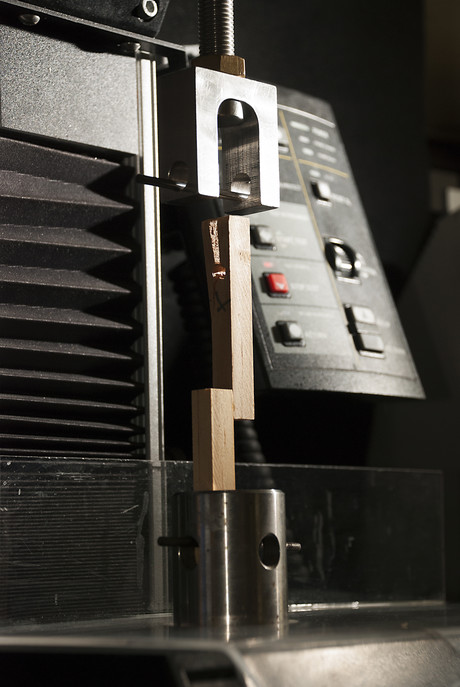Non-toxic adhesive from soy

A soy-based adhesive created in Jonathan Wilker’s lab at Purdue University could solve glue’s toxicity problem.
Wilker studies how marine animals, such as oysters and mussels, create natural adhesives. Unlike most glues these adhesives are non-toxic and many hold up underwater. While trying to re-create a new glue in his lab one day, Wilker noticed something strange.
“Things were sticking when they shouldn’t have been,” he said. “We found that the components being used, proteins and sugar, were reacting and turning into an adhesive.”
This is the essence of Maillard chemistry — it happens when you grill a streak or bake bread in the oven; after a while, the edges start to brown and a savoury smell fills the air. Chemically, sugars and proteins are combining to create aromatic compounds.
Usually, it takes heat to kick off this process, but Maillard chemistry is a whole class of messy reactions, and it can happen a few different ways. Products of each reaction get involved in their own reactions and can release chemicals that we experience as flavours.
“When foods brown, certain molecules are linking together. Proteins can connect to one another by reacting with sugars,” Wilker said. “When sea creatures make their adhesives, they are also cross-linking proteins together. They use totally different chemistry, but the idea is somewhat similar; cross-linking proteins can create an adhesive.”
This new soy-based adhesive doesn’t hold up well under water but it may find use in packaging of organic-certified food products.
“Food packaging usually relies on typical petroleum-based adhesives, which can leach out toxins,” Wilker said.
The findings were published recently in the Journal of the American Chemical Society.
To test the strength of the adhesive, Wilker’s team glued two pieces of wood or aluminum together. The far ends have a hole for a pin, and a machine pulls them in opposite directions to test their strength. The new adhesive was so strong on wood that the pin ripped through the hole.
Although the soy-based adhesive was pretty strong, the team achieved even better results with a different protein, bovine serum albumin (BSA). BSA is a generic protein often used in labs for experiments. It’s cheap for researchers, but not cheap enough to make a BSA-based adhesive affordable on a large commercial scale.
“If you want to break into the adhesive market, your product needs to be cheap, high-performance and the material also has to be available on large scales,” Wilker said. “This new soy-based adhesive may be able to hit these requirements while also being grown renewably.”
Originally published here.
Industry Code of Practice for plant-based food labelling
After a number of research studies, the Australian Government plans to strengthen plant-based...
2026 ANZ PIDA WorldStar winners announced
Seven Australian and New Zealand companies have received international recognition in the latest...
Celebrating 85th anniversary of CRYOVAC food packaging
Sealed Air Corporation is marking this milestone anniversary with a year-long celebration that...










